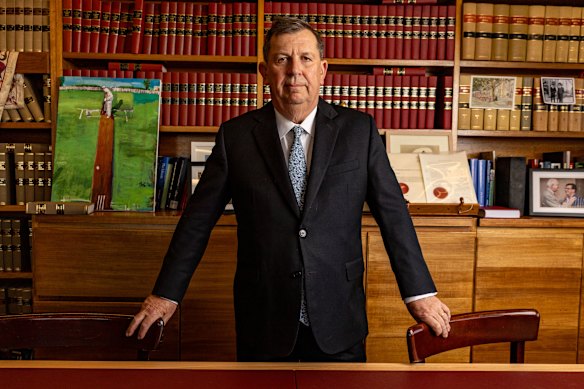
A family law case in Australia has escalated into a significant legal incident involving artificial intelligence. A solicitor from Victoria presented misleading citations during divorce proceedings, only to later reveal that these references were entirely fabricated by an AI chatbot. The case has raised serious questions about the integration of AI tools within the legal profession and their implications for justice.
The situation unfolded when Justice Amanda Humphreys and her associates could not find any evidence of the cited cases. Upon investigation, the solicitor admitted that the list of citations was generated by an AI tool without proper verification. In light of this revelation, he issued an unconditional apology and pledged to learn from the experience. Despite this, the matter was escalated to the Victorian Legal Services Board, highlighting the severity of the breach.
By August 19, 2023, regulatory action was taken against the solicitor. He lost his ability to practice as a principal, was banned from managing trust funds, and is now required to work under supervision with quarterly reporting for the next two years. This incident marks the first time a lawyer in Australia has faced professional sanctions specifically related to the use of artificial intelligence in court proceedings.
The ramifications of this case have not gone unnoticed within the legal community. Juliana Warner, president of the Law Council of Australia, expressed the profession’s increasing concerns about the use of AI tools. “Where these tools are utilized by lawyers, this must be done with extreme care,” she stated. Warner cautioned against a blanket ban on AI, asserting that such a measure would neither be practical nor proportionate.
In response to the growing uncertainty surrounding AI’s role in legal matters, New South Wales Chief Justice Andrew Bell has enacted restrictions on AI’s use in key evidence documents. Lawyers are now required to declare that no AI was used in affidavits, witness statements, or character references. AI can only be utilized for secondary legal research and must be subject to strict scrutiny.
Chief Justice Bell has identified generative AI as one of the most pressing challenges facing the justice system today. As the legal landscape continues to evolve alongside technological advancements, the profession must adapt while ensuring the integrity of legal proceedings remains intact.
This incident serves as a critical reminder of the importance of vigilance and accountability in the use of AI within the legal sector. With ongoing discussions about the role of technology in law, the implications of this case may shape future regulatory frameworks, ensuring that justice is upheld in an increasingly digital world.







